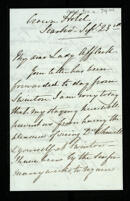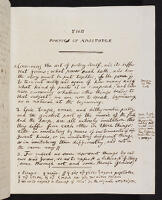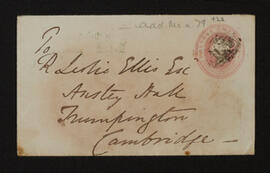Pera, Constant[ino]politanae - After an apology for the long delay in writing to the Fellowship, Barrow gives an account of his travels from Paris, with a description of his stay in Florence, prolonged because of the plague in Naples, which was predicted to spread to Rome whither he had planned to go next; heeding the warning that if caught by the plague he would not be able to leave, and it proving too difficult to reach Venice, he embarks on a ship to Constantinople. He describes the present state of affairs under the Grand Vizier, Koprulu Mehmed Pasha, who had come to power two years earlier: his work to restore the Ottoman name at home and abroad, recovering the islands of Tenedos and Lemnos, repelling an attack by the Venetian fleet, suppressing a revolt in Moldavia and Wallachia by removing their princes, repressing the infighting threatening the prestige of the empire, most recently undertaking an expedition to Transylvania on the pretext that Prince Ragotzy, a Turkish subject, had invaded Poland hoping to take the kingdom for himself. Barrow predicts that Christendom will find in the Grand Vizier its worst enemy and describes his punishment of Parthenius, the Patriarch of the Greek Church, who was accused of intrigue with the Duke of Muscovy despite the commonly held view that the accusations were false, and who was hanged and left on display in his Pontifical robes as a deterrent to plotters. Barrow closes with a promise to return to Cambridge within the year.
Docketed by William Derham, "Paper. 1. Dr Barrows Lr ...to the Fellows of Trin. Col. Cambridge from Constantinople. Caland August 1658. Publ. Lr 1. W.Ds.'
Barrow, Isaac (1630-1677), mathematician and theologian
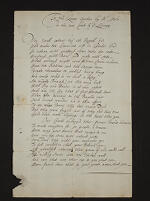
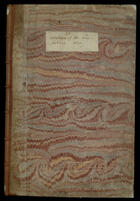
![[Thomas Hill], "Nundinae Sturbrigiensis"](/uploads/r/trinity-college-library/b/8/a/b8a589daedc4904d258e15b54d4d8d7a32f760ae16ed89983732c041c29d78c0/thumb.jpg)

![Statement of the personal property of [Francis Ellis?]](/uploads/r/trinity-college-library/3/e/1/3e123b4a723b47faf6259ffeb4b153acd039e496d4e3fb7de5c660ee59e03d4e/003_Add.ms.a.79_011_front.tmb.jpg)
![Letter from an unidentified person to [Francis Ellis?]](/uploads/r/trinity-college-library/0/e/2/0e2f7ba43b3b6c05ee060ed1c609706bc92852ce9f2fb5e624e9e97ec7918045/Add.Ms.a.79.522_thumb.jpg)







